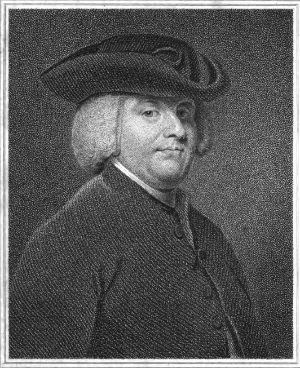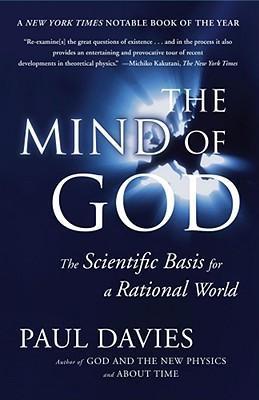Quarks Are Not So Crazy!
By Neil Earle
 Paul Davies. Photo by Christopher Michel via Wikimedia Commons
Paul Davies. Photo by Christopher Michel via Wikimedia Commons"It's amazing what's happening," my cousin Frank said to me.
"What Is, Frank?" I queried.
"The closer we get to the root of it all, the more mysteries we find."
"I'm not surprised."
"It's uncanny. The fields of science and theology are beginning to converge. When we think of subatomic particles – the dancing around of the quarks inside the nucleus of the atom to form neutrons and protons, for example – well, we are beginning to realize the universe is much more mysterious than we think."
"Right on. Have you heard of Paul Davies, by the way?"
"No. Should I?"
"Maybe. Davies is a professor of mathematical physics from Australia. He won the 1994 Templeton Prize."
"The Templeton Prize? What's that?"
"It's an award given each year to someone who shows the most originality in advancing our understanding of God or spiritual matters. Mother Theresa and Billy Graham have both won it."
"Good for him. In fact, I bought you this book by another mathematician. He thinks that the world around us – the explicit order, he calls it – is actually subservient to an implicit order that seems to be non-material and non-physical. Something more like pure thought."
"Really? Sounds fascinating, doesn't it? Will theology yet meet science on the high ground of Truth?"
"Do you always talk like this?"
 William Paley: propounder of the Watchmaker Theory.
William Paley: propounder of the Watchmaker Theory."Only when I get excited. But listen to this, Frank. Where we religionists have recently been skeptical of the old Argument from Design – the Divine Watchmaker idea – the theory that the universe and its synchronized running proves that there had to be a Watchmaker to wind it all up – well, now physicists like Davies are taking it up."
"Ah, yes. The Watchmaker argument. A preacher named Paley came up with it didn't he?"
"Yes. He was also a Cambridge mathematician in the early 1800s. Well, today's physicists are dusting it off again."
"Not all of them."
"No. But quite a few. They see the order in the universe as at least suggesting the presence of an underlying Controller."
"That reminds me of Einstein's statement: The most incomprehensible thing about the universe is that it is comprehensible."
"Right. Science meeting theology again. At least there's enough design in the underlying laws of the universe that it makes scientists now wonder, 'How come we can figure all this stuff out.'"
"You're right there. Einstein is one of my heroes. A supremely mystical and religious man. I think he was wrong about quarks, though."
Does God Play Dice?

My cousin Frank is a doctor with an M.S. in Physics. His brother works on a nuclear reactor in Canada. We talk like this often. I finally discovered a word for Frank – Cosmologist. Cosmology. A big word that discusses the origins of things. All things. The universe.
My cousin Frank (not his real name) had a lifetime interest in this subject. So had I. Now after a lifetime of working in different fields, here we were talking about quarks, quasars and quantums and their quirks and well, quarks.
quark (Phys.) A type of fundamental particle that forms the constituents of hadrons. There are currently believed to be six types of quarks (and their antiquarks) (Cambridge Dictionary of Science and Technology, page 730).
The Cambridge Dictionary of Science and Technology is a technician's delight. But it misses the drama of the debate engendered when scientists in the 1920s began to find out there were properties even smaller than atoms. Quarks and their whimsical ways were given such funny names as "charm," "strange," "top" and "bottom." Yet these dancing light displays seemed close to being the building blocks of all nature.
Einstein thought that these and other postulations made for too much uncertainty. "God does not play dice," he said.
Paul Davies recently touched on this in The Mind of God: The Scientific Basis for a Rational World. He wrote, "We human beings are able to grasp at least some of nature's secrets. We have cracked part of the cosmic code. Why this should be, just why Homo Sapiens should carry the spark of rationality that provides the key to the universe, is a deep enigma We are truly meant to be here What is Man that we might be party to such privilege?" (The Mind of God, page 232).
Think of it: the universe seems designed to have been understood – by us! We are intimately involved.
There seems to be an intentionality, a calling out to us from the cosmos itself. To Davies, to a growing body of scientists, to my cousin Frank, this suggests the idea of a Great Organizing Intelligence, the one Einstein casually referred to as God.
These are exciting times. Science may yet meet theology on the high ground of Truth.